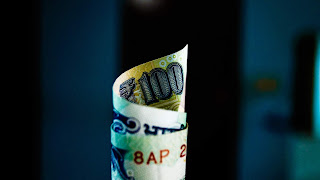 It’s Diwali, which means it’s time to hand
out the yearly ‘bakshish,’ or bonus, for the lack of a better word. This
bakshish is given to blue collared workers like house help (cleaners,
cooks, drivers, baby sitters), the lift-men who sit in the elevators pushing
buttons and the security personnel at building lobbies, whose job has now changed
to accepting Amazon deliveries, for the office-going occupants. Then, there are
those who mop and clean the building common areas and collect the garbage from homes. The list goes on.
It’s Diwali, which means it’s time to hand
out the yearly ‘bakshish,’ or bonus, for the lack of a better word. This
bakshish is given to blue collared workers like house help (cleaners,
cooks, drivers, baby sitters), the lift-men who sit in the elevators pushing
buttons and the security personnel at building lobbies, whose job has now changed
to accepting Amazon deliveries, for the office-going occupants. Then, there are
those who mop and clean the building common areas and collect the garbage from homes. The list goes on. These jobs do
not provide benefits, other than the assurance of having a job. Hence, I too engage in the customary ritual of wishing
each person ‘Happy Diwali’ and slipping in a note, while watching the smile on their faces, grow wider.
These jobs do
not provide benefits, other than the assurance of having a job. Hence, I too engage in the customary ritual of wishing
each person ‘Happy Diwali’ and slipping in a note, while watching the smile on their faces, grow wider. This practice in itself, is an ‘up – down’
phenomenon. I am giving from a space of privilege. Though, for some of them, especially the ladies, it’s more a matter
of entitlement. They demand for bakshish.
This practice in itself, is an ‘up – down’
phenomenon. I am giving from a space of privilege. Though, for some of them, especially the ladies, it’s more a matter
of entitlement. They demand for bakshish.  So, I look at the
lady who is collecting the garbage, as she asks, ‘Madam, Diwali?’ I give
her the note responding, ‘Happy Diwali.’ I do not shake her hand. She seems excited but also holds back from what would have been a natural hand-shake.
So, I look at the
lady who is collecting the garbage, as she asks, ‘Madam, Diwali?’ I give
her the note responding, ‘Happy Diwali.’ I do not shake her hand. She seems excited but also holds back from what would have been a natural hand-shake.
What stopped me in my tracks, was the sight of the rubber glove
on her right hand. While I can quote hygiene as an excuse, is it the only determining factor? I could have washed my hands later, if that were
the case.
 This incident led me to realise that I may have unconsciously internalised 'untouchability' towards a certain section and profession in society. I was surprised. I questioned the logic of it. If I were in critical condition at a hospital,
in need of blood or an organ transplant, it wouldn’t matter if the same lady volunteered as a donor. I wouldn’t care to turn
her away and ask for another donor. Though, biases aren't really logical now, are they?
This incident led me to realise that I may have unconsciously internalised 'untouchability' towards a certain section and profession in society. I was surprised. I questioned the logic of it. If I were in critical condition at a hospital,
in need of blood or an organ transplant, it wouldn’t matter if the same lady volunteered as a donor. I wouldn’t care to turn
her away and ask for another donor. Though, biases aren't really logical now, are they?






